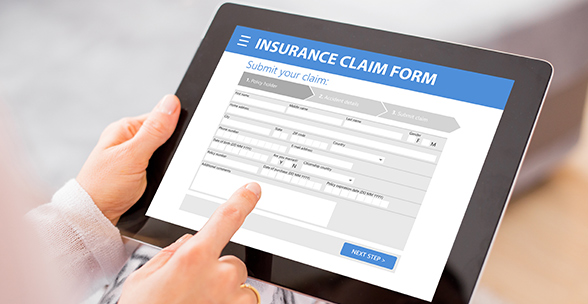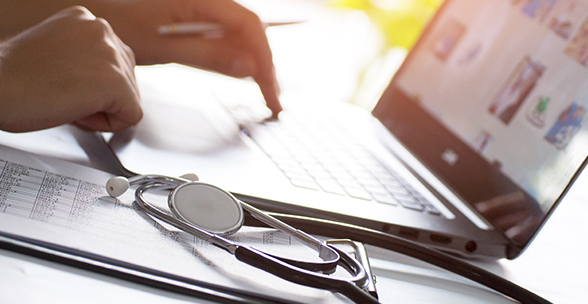How COVID-19 Relief Package Helps Independent Practices During COVID-19 Crisis
The current struggles of independent medical practices are often due to the canceling of non-COVID-19-related doctor appointments on top of other challenges they face in “normal” times such as various reimbursement cuts, EHR implementation costs, regulatory obligations and more.
At Kareo, we are concerned about the success of all independent medical practices. To help you better understand the CARES Act, we have listed the most recent details that can benefit your practice in this midst of the coronavirus crisis.
$117 billion allocated for hospitals and health systems
This funding is to replenish supply shortages, give more access to telehealth services, and pay for diagnostic testing and drug creation for treating coronavirus. Eligible providers are defined as public entities, Medicare- or Medicaid-enrolled suppliers and providers, and other for-profit and non-profit entities as specified by the Health and Human Services (HHS) Secretary.
Small businesses loans available
The CARES Act expands eligibility for loans under Section 7(a) of the Small Business Act and authorizes the SBA to make $349 billion in Section 7(a) loans during the period between February 15, 2020 through June 30, 2020. The loans will be guaranteed by the government and will be eligible for forgiveness for amounts spent on payroll costs, utilities, rent and mortgage interest during the 8-week period after the loan origination date, with such forgiveness amount reduced proportionately by any reduction in employee headcount or certain reductions in salary or wages.
Here are more details about these loans:
Eligibility
Any business that has 500 or fewer employees or that otherwise meets the size standards established by the SBA for the relevant industry and businesses with an NAICS classification that begins with 72 (Accommodation and Food Services) with more than one physical location and which employ no more than 500 employees per physical location. Borrowers must make a good faith certification: (1) that the uncertainty of current economic conditions makes necessary the loan request to support the ongoing operations of the eligible recipient, (2) to acknowledge that funds will be used to retain workers and maintain payroll or make mortgage payments, lease payments, and utility payments, and (3) that the recipient has not received, and does not have another application pending, for loans under Section 7(a) for the same purpose.
Maximum Loan Amount
The lesser of $10,000,000 or 2.5 times the average total monthly payments for “covered payroll costs” incurred during the 1-year period preceding the date of the loan. “Covered payroll costs” include salary, wages, cash tips, payments for vacation, parent, family, medical or sick leave, allowance for dismissal or separation, payments for group health care benefits, payments of retirement benefits, payments of state or local taxes on employee compensation, and payments of any compensation to or income of a sole proprietor or independent contractor that is wages, compensation or similar payments up to an annual rate of $100,000 (as prorated for a covered period).
Exclusions (from including in payroll costs) is an individual employee in excess of an annual salary of $100,0000 (as prorated for the covered period), taxes under chapters 21, 22 or 24 of the Internal Revenue Code, compensation to employees whose principal place of residence is outside the U.S., qualified sick leave or family leave wages for which a credit is allowed under Section 7001 of the Families First Coronavirus Response Act.
Maturity and interest rate
Maximum maturity of 10 years from the date of the loan and a maximum interest rate of 4%. Allowable Uses In addition to the generally allowable uses of Section 7(a) loans, the borrower may use proceeds from the loans for payroll costs; costs related to the continuation of group health care benefits during periods of paid sick, medical or family leave, and insurance premiums; employee salaries, commissions or similar compensation; mortgage interest payments; rent; and utilities; or interest on any other debt obligations incurred before February 25, 2020.
No Collateral Requirements or Personal Guarantees
Borrowers will not be required to post collateral or have personal guarantees under the loans (as they would under typical Section 7(a) loans). The loans are unsecured. Fee waiver Fees normally charged by the SBA for Section 7(a) loans would be waived. The lending institution extending the loan may charge the Borrower a TBD origination fee. Deferral All payments of principal and interest under the loans would be deferred for a period between six months and one year.
Loan Forgiveness
Borrowers will be eligible for forgiveness of the loans in the amount equal to the sum of payroll costs, mortgage interest payments, rent and utilities incurred during the 8-week period following the origination of the loan. However, the amount of forgiveness will be reduced (i) proportionately by any reduction in employee headcount in the covered period with respect to either (1) the period between February 15, 2019 and June 30, 2019, or (2) the period between January 1, 2020 and February 29, 2020 (or other period for seasonal businesses), (ii) by the amount of reduction in salary or wages beyond 25% of any employee (measured based on the most recent full quarter before the covered period) who did not receive, during any 2019 pay period, wages or salary at an annualized rate of pay of more than $100,000.
Exemption in Loan Forgiveness
There is one exemption that will contribute to a reduction in loan forgiveness - if employees who were terminated or had pay reductions from February 15, 2020 through 30 days after the enactment of the CARES Act (signed on March 27) are rehired or given wages or salary increases by June 30, 2020. The SBA is required to issue guidance and regulations implementing these loan forgiveness provisions no later than 30 days after the enactment of the CARES Act (other rules implementing the SBA provisions are to be adopted within 15 days after implementation). Borrowers would not recognize any income for federal tax purposes on the portion of the loans that are forgiven.
Qualified Lenders and Application Process
The loans will be available from existing SBA-certified lenders (e.g., JP Morgan and Wells Fargo), and others that may be added. Our advisors noted there is discussion around whether existing SBICs may be approved to make these loans (TBD for now). For the application process, the SBA has a “beta” platform where businesses could apply directly which the SBA is hoping will go live next week. Alternatively, borrowers can apply to traditional 7(a) banks and other institutions that are authorized by SBA. We (Golub) are in dialogue with JP Morgan and Wells Fargo to better define what information will be required and will follow up upon receiving more clarity to help expedite processing.
For a more detailed explanation of the CARES Act, you can review it on the American Medical Association website here. Kareo has also put together a list of COVID-19 resources on our website to assist you during the COVID-19 crisis. Stay tuned for future blogs that address the current COVID-19 crisis.




















